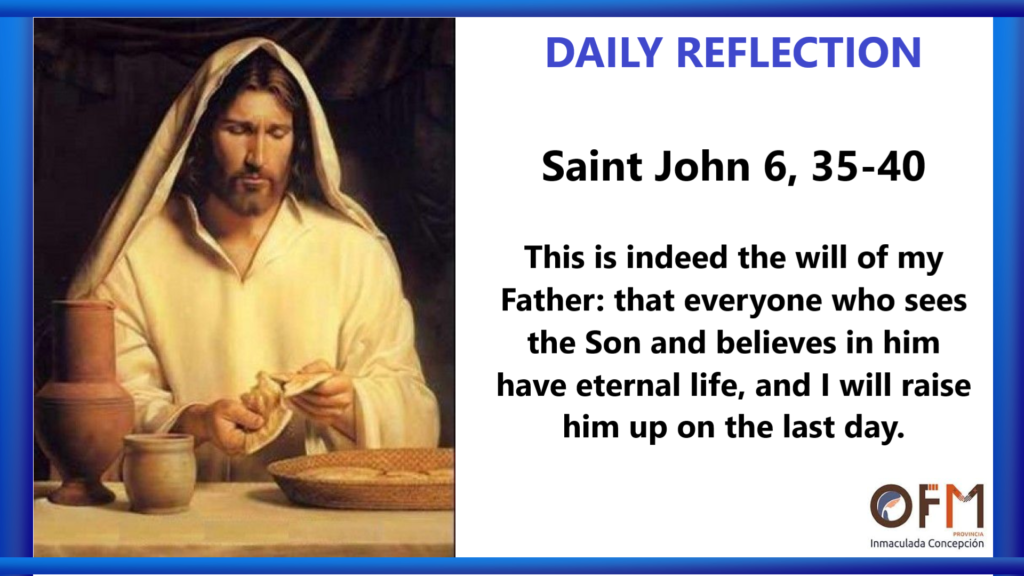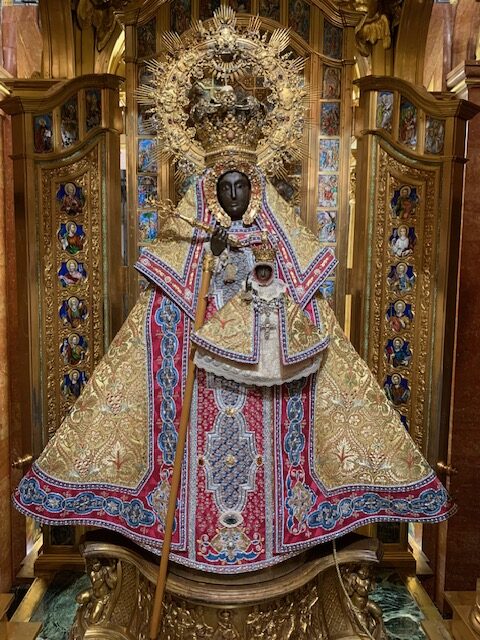
Wednesday third week of Easter
Gospel of Saint John 6, 35-40
The «discourse of the Bread of Life» that Jesus addresses to his listeners the day after the multiplication of the bread in the synagogue of Capernaum, enters its decisive development. This catechesis of Jesus has two very clear parts: one that speaks of faith in him, and the other of the Eucharist. In the first he affirms «I am the Bread of life»: in the second he will say «I will give the Bread of life». Both are closely related, and are part of the great catechetical page that the evangelist offers us on the subject of bread.
Today we hear the first. We repeat the last sentence of yesterday, v. 35: «I am the bread of life», which is the beginning of this section, which has faith in Jesus as its content. It is about believing in the one sent by God. Here Christ is called Bread not in a directly Eucharistic sense, but more metaphorically: to a hungry humanity, God sends his Son as the true Bread who will satisfy him. As he also sends it to you as the Light, or as the Shepherd. The effect of believing in Jesus is clear: whoever believes in him «will not go hungry», «he will not be lost», «I will raise him up on the last day», «he will have eternal life».
Reflection
The evangelist’s presentation of Jesus is also telling us that we need faith in preparation for the Eucharist. We are invited to believe in him, before eating him sacramentally.
See, come, believe: for our Eucharist to be fruitful, we must first enter into this dynamic of acceptance of Christ, of adherence to his way of life. That is why it is very good that at each Mass, before taking part in «the table of the Eucharist», eating and drinking the Bread and Wine that Christ offers us, we are invited to receive him and commune with him at «The table of the Word ”, listening to the biblical readings and accepting those of God as criteria of life.
The one who prepares us to «eat» and «drink» the eucharistic food fruitfully is Christ himself, who is given to us first as the living Word of God, so that we may «see», «come» and «believe» in him. This is how we will have life in us. It is like when the Emmaus disciples recognized him in the breaking of bread, but recognized that he already «burned his heart when he explained the Scriptures to them.»
The Eucharist has full meaning when it is celebrated in faith and from faith. In turn, faith reaches its full meaning when it flows into the Eucharist. And both must lead to life according to Christ. Believe in Christ. Eat Christ. Live like Christ.
Fr Antony Majeesh George, OFM










